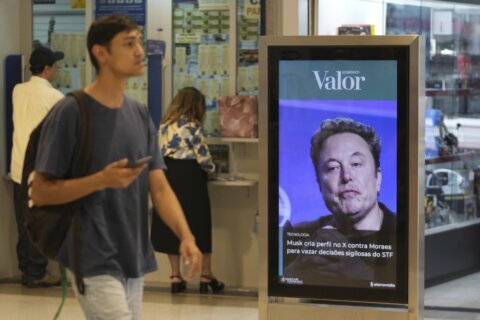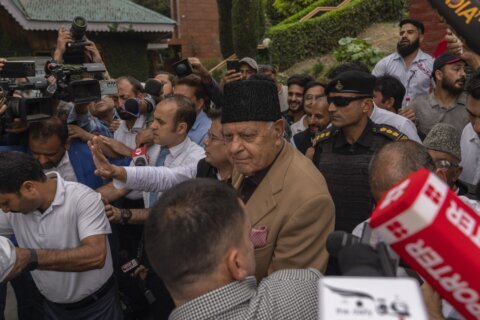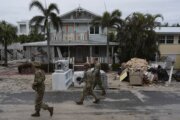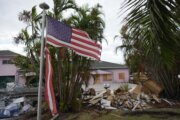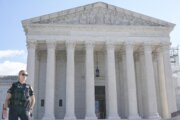When it comes to elementary school, parents in the Philadelphia area have plenty of private options.
But private elementary school can be a major commitment. For starters, traditional elementary school runs from kindergarten through fifth grade, meaning six years of tuition–longer than both high school and college.
While the average elementary school tuition in Pennsylvania is about $8,300 a year, slightly lower than the national average, according to the Education Data Initiative, rates in the Philadelphia area can be much higher. For example, William Penn Charter School, a well-known and respected K-12 school in the city, charges about $27,000 a year for kindergarten, and that rises to almost $33,000 a year in grades four and five, according to the school.
Yet supporters of private schooling say most schools offer financial assistance and that the cost comes with enormous value at all levels of education, especially in elementary grades.
“I think it provides a unique combination of nurture with serious academic challenge,” says Ayanna Hill-Gill, president of the Association of Delaware Valley Independent Schools. “A lot of times, it provides social diversity and really a deep commitment to connected learning. So it’s not just rote learning, it’s really understanding and preparing kids to be independent people. And that’s ultimately what we want.”
[READ: Top-Ranked Elementary and Middle Schools in Pennsylvania.]
Smaller Class Sizes
Many educators and consultants say that private education can be extremely beneficial in early grades, when students are learning essential skills like reading and rudimentary math. “Those are the foundational years,” Hill-Gill says. “You need to be able to have that strong base and a strong foundation to build upon.”
Jody Dobson, an educational consultant and owner of Dobson Educational Services in Philadelphia, says small class sizes and low student-to-teacher ratios are something parents value.
“The other thing they look for is facilities,” he says. “Is my child’s experience with the school going to be enriched by good physical facilities, physical education facilities, art facilities, music facilities, drama facilities.”
Expanded programs in areas like science, theater and music are often a draw at private elementary schools, as is the ability to add religious education or after-school extracurricular programs.
“Another thing that parents look for is culture,” Dobson says. “I guess what they’re looking for is a culture of achievement, a culture of effort, a culture that values education, a culture where the child who really wants to do well is not going to feel singled out for being a nerd.”
[READ: Is Private School Tuition Tax Deductible?]
Student-Teacher Connection
In elementary grades, where students often spend large amounts of time with a small handful of teachers, or even one, the student-teacher relationship is also important. Supporters say private schools, which are generally smaller, often foster that relationship well.
“Teachers are very connected to the students and value the relationship between student and teacher, which allows them to help create an environment where students want to learn,” Hill-Gill says.
Caryn Rivers, an educational consultant and owner of Pathfinder Placement in Philadelphia, says the relationship between teachers and parents can be different at a private school as well.
“Through fourth grade, I would say the value proposition is small classes, individualized learning and parent access to teachers and administrators,” she says. “If there’s an outlier event, or outlier learning difference, or even an outlier bad day, you’re far more likely to hear about it because the teacher is … expected to be prepared to answer to families.”
She says that is true in the day-to-day and when report cards come out. “You’ll often see more than just a letter grade or a number on a report card,” she says. “You’ll often see narratives about how it’s going.”
Private Elementary Schools in Philadelphia
For parents who are interested in exploring private elementary schools, here are some examples in Philadelphia and the surrounding area:
— Abington Friends School in Jenkintown is a PK-12 Quaker school with about 25 students in each elementary grade. The school does not use standardized testing, though fourth graders do take a test “as a practical experience.”
— The Baldwin School in Bryn Mawr is an all-girls school serving about 600 students in grades PK-12. Among the 63 seniors who graduated in 2021, who collected 248 acceptances at 149 colleges, one in five started at Baldwin in kindergarten.
— The City School is a Christian school with multiple campuses in Philadelphia. It serves about 430 students in grades PK-12. The school is “committed to integrating the Bible into every subject,” according to its website, and provides financial aid to more than two-thirds of its families.
— Germantown Friends School is a Quaker school serving almost 1,130 students in grades PK-12, with a student-to-teacher ratio of 6-to-1. The Lower School curriculum includes enrichments like Spanish, woodworking and theater.
— The Haverford School is an all-boys school serving about 940 students in grades PK-12, including about 240 in elementary school. All elementary school students engage in service, completing about 100 projects every year.
— The Miquon School serves about 150 students in grades PK-6 on a 10-acre campus in Whitemarsh Township. Roughly half the staff have advanced degrees.
— Norwood-Fontbonne Academy is a Catholic Montessori school serving students in grades K-8. The school offers Montessori and non-Montessori tracks in grades PK-3, and all students transition to a non-Montessori fourth grade experience.
— Springside Chestnut Hill Academy serves about 1,060 students in grades PK-12. The school offers single-gender education in elementary and middle school and then a co-educational experience in the high school grades.
— St. Peter’s School serves about 175 students in grades PK-8. The student-to-teacher ratio is 11-to-1 and the average class size is 11. The school’s City Curriculum ties lesson plans to off-campus experiences at museums and other community resources throughout Philadelphia.
— William Penn Charter School is the oldest Quaker school in America, created in 1689 by William Penn. It serves about 990 students in grades PK-12. The Lower School is housed in its own building on the 47-acre campus and has an average class size of 16.
Searching for a school? Explore our K-12 directory.
More from U.S. News
How to Get Private School Financial Aid
Exploring Private High Schools in San Francisco
Exploring Private High Schools in Los Angeles
Exploring Private Elementary Schools in Philadelphia originally appeared on usnews.com

